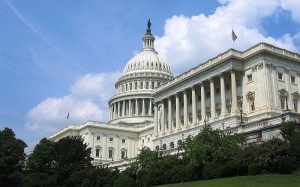The House of Representatives Passed its version of the National Defense Authorization Act last Friday, June 14. The Senate Armed Services Committee passed through their version of the defense bill this week, focusing on investment rather than construction. While the House has advocated for an East Coast Missile Defense site, the Senate passed on it in favor of spending that money on advanced sensors and research. Since the two differ on what is a more prudent defense option, they will have to decide in conference.
The Senate Armed Services Committee authorized its National Defense Authorization Act, allocating $625.1 billion in Defense Department spending. The bill would require the Missile Defense Agency to deploy more sensors, such as the X-Band Radar, to defend the con tinental United States against potential long range ballistic missile threats.
tinental United States against potential long range ballistic missile threats.
The Senate believes that installation of the X-Band Radar would be both cheap and effective. While there is no provision for an East Coast Missile Defense site like there is in the House’s Bill, the Senate plans to evaluate whether an East Coast Site is necessary.
Moreover, the Senate’s Bill will reinforce nonproliferation programs, and ensure the reduction and security of nuclear weapons stockpiles. It also requires the Secretary of Defense to report to Congress on future options for ballistic missile defense, including the future option of an East Coast missile defense site.
Missile defense programs will get $9.3 Billion under the Senate Armed Services bill, which is $150 million more than had been requested.
The House National Defense Authorization Act, which allocated $512.5 Billion for base spending, rejected an amendment that would have prevented the pentagon from increasing the number of ground based missile defense interceptors on the west coast. They also rejected a proposal offered by Jared Polis that would have compelled the pentagon to provide two successful ballistic missile tests by 2015.
The House and the Senate have two different approaches towards missile defense. It will have to be sorted out during conference, which has not been scheduled as of yet. The Senate has not entirely ruled out the possibility for an East Coast Missile Defense site, but their plan will not begin development in fiscal year 2014, like in the House’s plan. However, President Barack Obama has said that he intends to veto the House bill if it comes to his desk, which means that the Senate’s plan to invest in research and development seems to have the upper hand.


